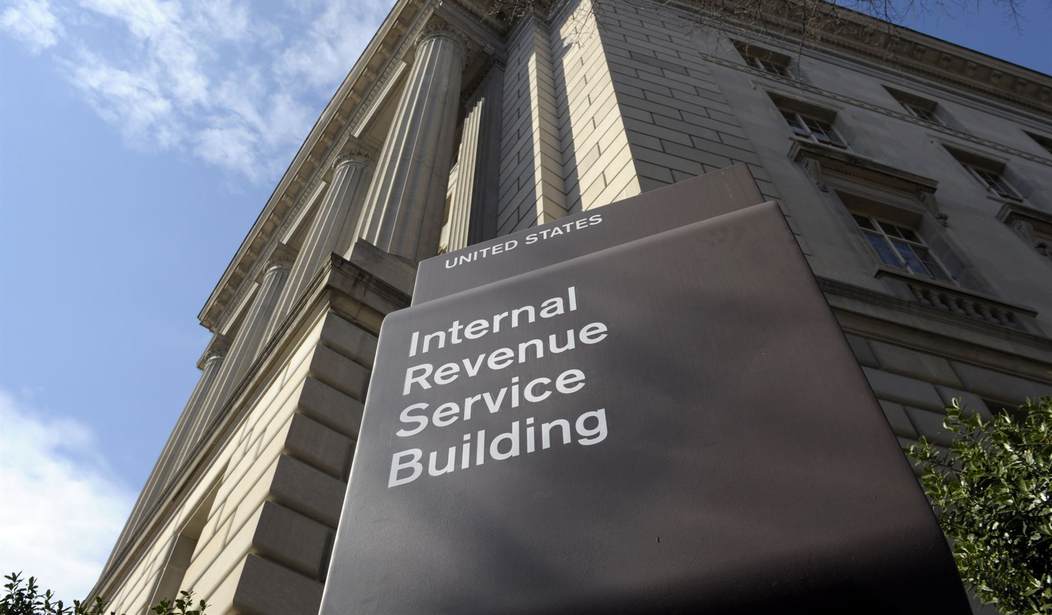The Trump administration scored another legal win Monday as D.C. District Court Judge Dabney Friedrich denied the plaintiffs' motion for a preliminary injunction in a case challenging the Internal Revenue Service (IRS) sharing of data with the Department of Homeland Security (DHS) for immigration enforcement purposes.
The order by U.S. District Judge Dabney Friedrich came amid a lawsuit by Centro de Trabajadores Unidos, an immigrant-rights aid group, against Treasury Secretary Scott Bessent.
"At its core, this case presents a narrow legal issue: Does the Memorandum of Understanding between the IRS and DHS violate the Internal Revenue Code? It does not," Friedrich wrote in his order.
(Note: Friedrich, a Trump appointee, is a woman, so that would be her order.)
The order itself is relatively brief (16 pages) and direct. In it, Friedrich notes that there's a statutory provision in the tax code that specifically provides for the sharing of information contemplated here:
Under the tax code, those records are kept confidential and may not be shared outside the IRS, unless a particular statutory exception applies. 26 U.S.C. § 6103(a). As relevant here, one such exception, § 6103(i)(2), allows the head of any federal agency to request tax return information to aid in investigating or preparing for a judicial or administrative proceeding to enforce designated criminal statutes. Id. § 6103(i)(2).
On April 7, 2025, the IRS and DHS entered into a Memorandum of Understanding setting forth the process for exchanging information pursuant to the statute. In essence, the memorandum tracks the language of the statute and allows for the information to be exchanged for "persons subject to criminal investigation.” The plaintiffs, four nonprofit organizations representing the interests of immigrants, assert that this is somehow in violation of the law. Judge Friedrich disagreed and, as such, concluded that they were not likely to win the case on the merits, so a preliminary injunction was not warranted here.
RELATED: That Didn't Take Long: D.C. Circuit Places Stay on Key Ruling That Favored Trump Administration
Federal Judge Orders Trump Admin to Begin Processing 12,000 Refugees in Next 7 Days
While it is unclear how many illegal aliens this may pertain to — the plaintiffs pointed to newspaper articles asserting that DHS had requested records for at least 700,000 illegal immigrants — the order provides an example of instances in which DHS might request taxpayer information from the IRS, including address information, in the context of a criminal investigation:
[I]f DHS is investigating an immigrant for remaining 90 days past a final removal order, a recent address could confirm that the immigrant did in fact overstay the order. See Rough Hr’g Tr. at 59; see also 8 U.S.C. § 1253(a)(1). An address could also confirm that an individual re-entered the U.S. Id. at 54, 60. And if a final removal order was issued in absentia, DHS might send a notice letter to ensure that the immigrants was aware of the order.
Also on Monday, Friedrich denied the motion of American Oversight (a group involved in several suits against the Trump administration) to intervene in the case. In doing so, she noted that she was unsealing most of the Memorandum of Understanding (MOU) between the IRS and DHS, along with the parties' briefs, thus obviating American Oversight's contention that intervention was warranted to access the documents at issue:
The MOU is a central focus of this litigation, and the information contained in the redacted MOU has been widely discussed, including on the record in open court at the April 16, 2025 preliminary injunction motion hearing. Although the government objects to its full disclosure, it has not asserted a compelling interest or high risk of prejudice with disclosure of the MOU and briefs. The public need for access is high given that the MOU's content is essential to the claims raised by the plaintiffs and the Court's reasoning in its forthcoming opinion on the 28 Motion for a Preliminary Injunction. The Court will not order, however, that the IRS "points of contact" on page 13 of the MOU be unsealed. With respect to those lower level government employees, the Court concludes that their personal privacy interests outweigh any public need to access their names and contact information.
In sum, this is a win for the administration, and one the plaintiffs may opt not to appeal, though we'll continue to monitor it in case they do.
Editor's Note: Partisan federal judges are hijacking President Trump's agenda and insulting the will of the people
Help us expose out-of-control judges dead set on halting President Trump's mandate for change. Join RedState VIP and use promo code FIGHT to get 60% off your membership.













Join the conversation as a VIP Member